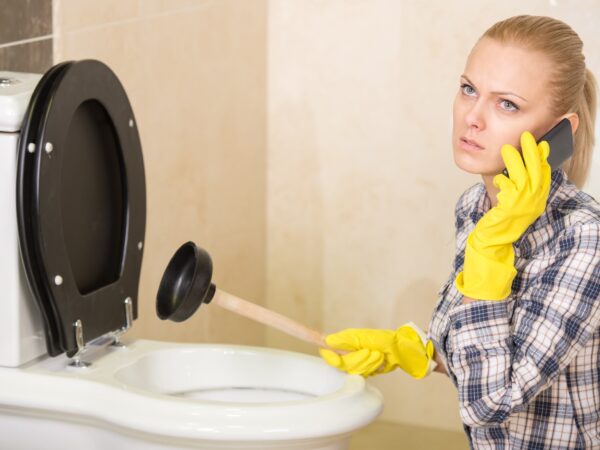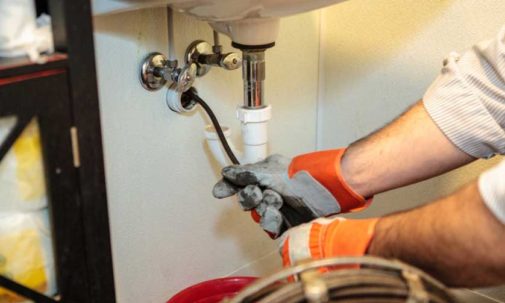Fast Pipe Repair Solutions for Emergencies Until Assistance Arrives
Fast Pipe Repair Solutions for Emergencies Until Assistance Arrives
Blog Article
Are you in search of critical info on Expert Tips for Emergency Plumbing Repairs?

Pipes emergency situations can strike any time, causing stress and potential damage to your home. Whether it's a burst pipe, a blocked drain, or a leaking faucet, understanding exactly how to handle the situation till a specialist plumbing professional gets here can conserve you from more complications. This article provides essential emergency pipes pointers to aid you minimize damages and gain back control during a plumbing crisis.
Turn Off the Water Supply
The first step in any pipes emergency situation is to turn off the supply of water. For localized issues, such as a dripping tap or bathroom, shut off the valve near the component. When it comes to a major leak or burst pipeline, find your home's primary water shut-off valve and transform it off promptly. Understanding the location of these shutoffs ahead of time can save valuable time throughout an emergency situation.
Shut Off Your Water Heater
In particular emergencies, such as a burst pipeline, it's smart to shut off your hot water heater. This stops overheating or damages to the system when water stops moving. Shut off the power supply to the water heater (electrical or gas) and allow it cool off to avoid possible dangers.
Momentarily Stop a Ruptured Pipe
A burst pipeline can cause substantial water damage in mins. To reduce the concern:
Call a professional plumbing professional right away to deal with the trouble completely.
Have an Emergency Situation Plumbing Kit
Prepare a standard plumbing emergency situation set to handle small issues properly. Your set needs to consist of:
Having these devices available can make a substantial difference in your capacity to manage emergency situations.
Unclog Drains Securely.
A clogged drain can be a frustrating and untidy concern. Right here's just how to tackle it:.
If these methods do not work, prevent using extreme pressure, as it may get worse the blockage.
Take Care Of Overflowing Toilets.
An overflowing bathroom can create immediate disorder. Here's what you must do:.
Address Small Leaks with Short-lived Fixes.
Small leakages can promptly become significant issues if left untreated. Make use of these temporary fixes until expert assistance arrives:.
While these repairs aren't long-term, they can help reduce water loss and damage.
Deal With Frozen Pipes Meticulously.
In cooler climates, frozen pipelines are a typical emergency. If you suspect an icy pipe:.
Know When to Call an Expert.
While quick fixes can aid momentarily, particular pipes problems need immediate expert attention. Call a plumber if:.
Promptly calling a professional makes sure the concern is settled properly and prevents additional complications.
Avoid More Damage.
Taking quick activity to minimize damage can conserve you money and time in the long run. Right here's just how:.
Conclusion.
Plumbing emergencies can be frustrating, yet with the appropriate knowledge and tools, you can handle the situation properly till assistance shows up. By shutting off the water system, dealing with tiny leakages, and making use of momentary fixes, you can minimize damage and maintain your home safe. Bear in mind, these ideas are short-term solutions; constantly get in touch with a qualified plumbing technician to deal with the root cause of the trouble. Preparation and quick reasoning are your finest allies in any pipes emergency situation.
8 Helpful Tips for Managing Plumbing Emergencies at Home
If your plumbing system hasn’t failed once, wait for it because almost everyone has a story to tell. Sometimes, it could be simple emergencies such as a leaking pipe, a blocked cistern, or even a big burst pipe. In situations like this, you need to have some handy tips to save you some money and from possible damages.
Take care of minor issues early.
Sometimes, you could have avoided an emergency by taking proactive measures while it was still early. Some major plumbing emergencies can be a result of an ignored minor issue. We recommend that you have items like plumbing tapes and other related items. A plumbing tape can allow you to manage minor leaks before the plumber arrives.
Cut off the water supply.
This tip is essential in almost any type of leakage problem. For problems like minor leakages in the toilet or kitchen, turn off the supply that takes water to the affected pipes. If the leakage is a major pipe, you must shut off the supply valve to the entire building. This will help you avoid flooding your home and neighbors if you share a flat.
Know your plumbing system
Folks typically move into a new apartment without understanding the water supply around the building. This can prove disastrous if a water emergency arises and the plumber is far away. The previous tip will prove useless if you don’t practice this one. More importantly, know where your water shut-off valve is located – you’ll need that knowledge to prevent potential home floods.
Have some common handy tools
There are lots of plumbing emergencies that you can handle without hiring a plumber. That’s why you must keep some tools available always. Some tools that you can use to fix simple plumbing emergencies easily include plumbing tapes, screwdrivers, thread seal tapes, plungers, pliers, tape measures, and rubber gloves.
Insulate your pipes from cold
You’ll save yourself from many plumbing expenses if you protect your water pipes from the cold. This is because of the harmful effects that cold weather can have on your pipes. During winter, your pipes can burst from being overly expected to freezing temperatures. So, make sure insulators are there to keep the pipes working correctly.
Avoid practices that will clog your toilet.
Many people indulge in practices that can damage the plumbing system of the entire building. One of these is when they use their toilet to dispose-off garbage. They flush all kinds of things, such as paper towels, bandages, hairs, female sanitary products, etc., down the toilet. This will block your toilet in the long run, incurring unnecessary expenditures. Dump such waste in the trash instead.
Check your dials regularly.
Sometimes, there could be leakages in your home without noticing them in time. So, constantly monitor your water meter dial. If the dial is reading when there is nobody using water, this is an indicator that there is leaking. Check for leaks immediately. Call a plumber as soon as possible if you can’t find any.
https://www.constructionplacements.com/8-helpful-tips-for-managing-plumbing-emergencies-at-home/

We had been made aware of that report about What to Do During a Plumbing Emergency through someone on another web property. Those who enjoyed our page if you please be sure to pass it around. I thank you for your readership.
Get Started Report this page